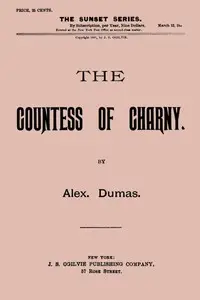"Massacre at Paris" by Christopher Marlowe is a gripping play set in 16th-century France, revealing the intense political and religious conflicts that led to the St. Bartholomew's Day Massacre. The story dives into a world of scheming and backstabbing as powerful figures such as King Charles IX, the Duke of Guise, and King Henry of Navarre battle for control amid religious intolerance. Ambition and betrayal run rampant, especially when the Duke of Guise, backed by the Queen Mother, ignites a violent purge of French Protestants. The play vividly illustrates the resulting chaos and moral decay as characters make desperate choices, highlighting a society devastated by the collision of faith and power, and mirroring both historical events and the timeless struggles they ignite.
Massacre at Paris
By Christopher Marlowe
In a kingdom divided by faith, a ruthless nobleman's thirst for power unleashes a wave of violence that bathes the streets in blood, forever changing the course of destiny.
Summary
About the AuthorChristopher Marlowe, also known as Kit Marlowe, was an English playwright, poet, and translator of the Elizabethan era. Marlowe is among the most famous of the Elizabethan playwrights. Based upon the "many imitations" of his play Tamburlaine, modern scholars consider him to have been the foremost dramatist in London in the years just before his mysterious early death. Some scholars also believe that he greatly influenced William Shakespeare, who was baptised in the same year as Marlowe and later succeeded him as the preeminent Elizabethan playwright. Marlowe was the first to achieve critical reputation for his use of blank verse, which became the standard for the era. His plays are distinguished by their overreaching protagonists. Themes found within Marlowe's literary works have been noted as humanistic with realistic emotions, which some scholars find difficult to reconcile with Marlowe's "anti-intellectualism" and his catering to the prurient tastes of his Elizabethan audiences for generous displays of extreme physical violence, cruelty, and bloodshed.
Christopher Marlowe, also known as Kit Marlowe, was an English playwright, poet, and translator of the Elizabethan era. Marlowe is among the most famous of the Elizabethan playwrights. Based upon the "many imitations" of his play Tamburlaine, modern scholars consider him to have been the foremost dramatist in London in the years just before his mysterious early death. Some scholars also believe that he greatly influenced William Shakespeare, who was baptised in the same year as Marlowe and later succeeded him as the preeminent Elizabethan playwright. Marlowe was the first to achieve critical reputation for his use of blank verse, which became the standard for the era. His plays are distinguished by their overreaching protagonists. Themes found within Marlowe's literary works have been noted as humanistic with realistic emotions, which some scholars find difficult to reconcile with Marlowe's "anti-intellectualism" and his catering to the prurient tastes of his Elizabethan audiences for generous displays of extreme physical violence, cruelty, and bloodshed.

